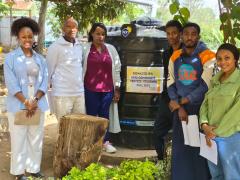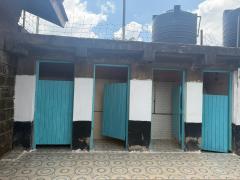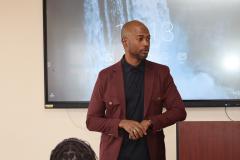VCs Weekly Higher Education Digest: February 11, 2019
Universities key in fighting global terror – DAAD By Gilbert Nganga UNIVERSITY WORLD NEWS
Following the rising profile of universities as a key component in terrorism organisations, Kenya’s Ministry of Education and CUE have been pushing for tighter measures to improve security within and around, aimed at preventing a recurrence of the fatal Garissa attack.The measures include curtailing the potential for student radicalisation and general criminal activity, and the requirement for universities to implement biometric identification systems and automate students’ records.
https://www.universityworldnews.com/post.php?story=20190205082037362
Universities must explore alternative ways to fund staff By Samuel Ofosu and Eric Fredua-Kwarteng UNIVERSITY WORLD NEWS
Ghanaian public universities should explore other sources of supplementary funding. Ghanaian public university leaders cannot expect the existing level of government funding to continue forever. Indeed, the government's salary cut-off policy represents an opportunity for Ghanaian public university leaders to think outside the box, so to speak, and gradually ease their total dependency on government funding.
https://www.universityworldnews.com/post.php?story=20190204104949882
Increasing the visibility of local journals By Wondwosen Tamrat UNIVERSITY WORLD NEWS
In 2017 the Ethiopian Academy of Sciences (EAS) published an important survey that disclosed for the first time the nature, current status and challenges of Ethiopian academic journals that publish local articles. Among other things, EAS’ empirical findings identified various challenges of journal publication in Ethiopia – such as lack of budget, shortage of submissions, poor online visibility, lack of rigour and quality, absence of international indexing, and frequent interruption.
https://www.universityworldnews.com/post.php?story=20190117083946556
Why Does Publishing Higher-Ed Research Take So Long? By Alexander C. Kafka THE CHRONICLE OF HIGHER EDUCATION
A perfect storm is slowing journal publication in the field of higher education, leading one top title to temporarily halt submissions. Growth in the discipline, a spike in quality and international submissions, reluctance by scholars to review articles, and focus on a limited number of top publications all contribute to backlogs and sluggish turnaround, say editors of the top three journals in the field.
https://www.chronicle.com/article/Why-Does-Publishing-Higher-Ed/244291
Launch of Africa’s first centre for Silk Road studies By Wagdy Sawahel UNIVERSITY WORLD NEWS
Africa’s first institutionalised centre dedicated exclusively to studying all initiatives related to the Silk Road – the historical trade route connecting East and Southeast Asia with Africa, West Asia and Europe – will be established in Egypt to serve as a regional platform for Chinese and African studies.
https://www.universityworldnews.com/post.php?story=20190128112816433
ARUA conference 2019 – Preparing for ‘the revolution’ By Sharon Dell UNIVERSITY WORLD NEWS
How can African universities lead the way in preparing their societies for the fourth industrial revolution? How can they prepare students? And what kind of research will support the production of goods and services and mitigate the fallout of the new revolution?
https://www.universityworldnews.com/post.php?story=20190204105902463
Slow and Steady for Competency-Based Education By Paul Fain INSIDE HIGHER EDUCATION
Competency-based education has spread slower than many expected, particularly given hype in recent years about its approach, which emphasizes what students know and can do, tends to be more focused on employer needs, and often features elements of personalization and self-pacing for students. https://www.insidehighered.com/news/2019/01/28/slow-growth-competency-based-education-survey-finds-interest-and-optimism-about-it
Can Data Make You a Better Teacher? By Beth McMurtrie THE CHRONICLE OF HIGHER EDUCATION
Professors often rely on a combination of intuition, experience, standard practice, and cues from their students to figure out what works and what doesn’t in their classrooms. But now colleges are increasingly aiming to do for instructors what they’ve done for advisers and others — use data and analytics to do their jobs more effectively.
https://www.chronicle.com/article/Can-Data-Make-You-a-Better/245597
There is no such thing as a naturally gifted teacher By Jessica Riddell UNIVERSITY AFFAIRS
There is no such thing as a naturally gifted teacher. Similarly, there is no such thing as a naturally gifted researcher. Both of these endeavours require effort, thought, persistence, resilience, and a belief that we can grow and transform as scholars, as individuals and as citizens.
The Great Disappearing Teaching Load By John T. McGreevy THE CHRONICLE OF HIGHER EDUCATION
How many courses per semester should a faculty member at a major research university teach? The question is rarely asked — because it’s in no one’s interest to ask it…. It’s actually in the interest only of innocent undergraduates, who don’t realize that the tenure-line faculty members supported by their tuition dollars may be teaching a decreasing number of courses.
https://www.chronicle.com/article/The-Great-Disappearing/245582?cid=wsinglestory_41_4
Some Colleges Cautiously Embrace Wikipedia By Megan Zahneis THE CHRONICLE OF HIGHER EDUCATION
Academics have traditionally distrusted Wikipedia, citing the inaccuracies that arise from its communally edited design and lamenting students’ tendency to sometimes plagiarize assignments from it. Now, Davis said, higher education and Wikipedia don’t seem like such strange bedfellows. At conferences these days, “everyone’s like, ‘Oh, Wikipedia, of course you guys are here.’”
https://www.chronicle.com/article/Some-Colleges-Cautiously/243968
Teaching intelligence: how to improve science students’ writing By Anna Sajina TIMES HIGHER EDUCATION
Many graduate students in science and engineering maintain an attitude of “I am good at science and engineering, and all this humanities stuff is boring. I’d like to spend as little time and effort on it as possible.”However, the reality is that they cannot become successful scientists or engineers if they are unable to write.
https://www.timeshighereducation.com/news/teaching-intelligence-how-improve-science-students-writing
What Does Higher Ed Have to Say About the Proposed Title IX Rules? By Sarah Brown THE CHRONICLE OF HIGHER EDUCATION
The Education Department's proposed regulations on Title IX, the federal gender-equity law, would provide colleges with some long-sought flexibility when responding to sexual-misconduct reports — but would make campus disciplinary proceedings far too legalistic and burdensome.
https://www.chronicle.com/article/What-Does-Higher-Ed-Have-to/245581
The Yin and Yang of Security and Privacy By Valerie Vogel and Joanna Grama EDUCAUSE
In 2019, Information Security Strategy again headlines the list. Higher education institutions intrinsically recognize the importance of securing the many different types of data needed to "run the business."… But what exactly is information security strategy?... For the first time, Privacy made the Top 10 IT Issues list, landing in the #3 spot for 2019. But what exactly is privacy?
https://er.educause.edu/articles/2019/1/the-yin-and-yang-of-security-and-privacy
Chinese universities aid huge surge in AI inventions By Wagdy Sawahel and Yojana Sharma UNIVERSITY WORLD NEWS
A new study by the World Intellectual Property Organization (WIPO) in Geneva, Switzerland, has documented “a massive recent surge” in artificial intelligence-based inventions, with China-based universities making a strong showing as top higher education and scientific research institutions in this field, which is generally dominated by United States and Japanese companies.
https://www.universityworldnews.com/post.php?story=20190205074220489
Accreditors could be doing much more to fight corruption By Mary Beth Marklein UNIVERSITY WORLD NEWS
Quality assurance bodies could be doing much more to address corruption in higher education but often don’t view it as their responsibility, preliminary survey findings suggest. Accreditors in some parts of the globe are paying attention to the problem, the study found. But for a host of complex reasons, corruption is barely on the radar screen in other pockets of the world.
https://www.universityworldnews.com/post.php?story=20190206105718709
Why scientists flee universities for the private sector By Pacific Standard UNIVERSITY WORLD NEWS
Scientists working in the United States today are as active as they've ever been, but there's been a dramatic shift in how exactly they conduct their research…. A recent study following the careers of over 100,000 scientists for over 50 years found that half of university-hired scientists leave the academic life after just five years.
https://www.universityworldnews.com/post.php?story=20190208095253758
The benefits and challenges of international research collaboration By Brian Owens UNIVERSITY AFFAIRS
Academic research is becoming ever more international. Whether it is to gain access to specialized equipment, develop new ideas or tap into new sources of funding, researchers are reaching out to their colleagues around the world, and their work is better for it.
Black female academics in UK ‘face pervasive bullying’ By Jack Grove TIMES HIGHER EDUCATION
Black female academics face a culture of “passive bullying and racial microaggressions” in UK universities that holds back their chances of promotion, a study claims. That finding is part of a report released by the University and College Union on 4 February that draws on interviews with 20 black female professors.
https://www.timeshighereducation.com/news/black-female-academics-uk-face-pervasive-bullying






